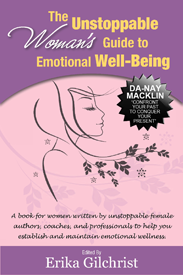Can Arguing Be Good For Your Health?
Coaches Corner with
The Conquering Coach
“You Cannot
Conquer What You Will Not Confront!” Judging strictly by
feelings, arguing is good for your health if you won
the argument and bad for your health if you lost.
The winner has a sense of accomplishment and feels
great about the “victory”. The person who lost
is emotionally defeated and angry. Actually,
an argument with a winner and loser is unhealthy
for both participants. Studies have shown that arguing can have
serious physical effects. A study of 3,682
couples discovered that when women gave up and gave
in during arguments with their husbands, they risked
being four times more likely to die than women who
knew how to argue toward a productive result. They
also were at risk of developing depression and
irritable bowel syndrome, according to the medical
journal, Psychosomatic Medicine.
http://www.pbs.org/thisemotionallife/blogs/arguing-intimacy Men, on the other hand,
chance getting serious health conditions from
repeated unproductive arguing. Duke University
Medical Center studied men who frequently harbored
intense hostility, anger and depression, and found
them to be at greater risk of high blood pressure,
coronary artery disease and type two diabetes.
Is there any kind of arguing that is
good for you? Sometimes
we feel better after an argument because we finally
said what we had been stewing over. We feel a
sense of release because we know that the other
person knows where we stand and the ball is now in
his court.
Arguing lets you discover something you
didn’t know about the other person.
Maybe you never realized that your husband hates it
when you keep getting up to putter with chores while
the two of you are watching TV. Maybe you
learned that your mom and dad worry when you forget
to call and let them know where you are. Or
perhaps you found out that the reason your wife
doesn’t like you going out with the guys is because
her father did it constantly. Healthy
arguing opens your eyes to sensitive areas in
the other person. By adjusting your future
words, actions, and attitudes to take these into
consideration, you can make your lives together
easier. |
  |
.jpg) |
|
Arguing clears the air. If you stay focused on the issue instead of attacking the other person, the problem can be addressed and settled without either party feeling attacked. This kind of healthy arguing deals with the situations that inevitably surface yet protects each person by being logical and problem-oriented instead of emotional and person-oriented. Arguing gives you a
chance to validate the other person.
The wrong way to argue is to tear down the other
person so that you and your argument can rise to the
top. Repeated blows to the other person’s
sense of worth could raise the risk that he or she
could later become physically ill from the non-stop
stress. You don’t want that on your
conscience. Instead, at the beginning of your
argument, and during it, remind the other person of
how well he handled similar situations in the past,
of his ability to make smart decisions, and any
other coping quality he has that relates to the
issue so that you are building up his self-esteem
while you are pointing out what needs to change.
This lets your arguing partner know that you value
him as a person and his right to an opinion while
encouraging him to respect your right to disagree.
Finishing an argument
with both parties agreeing, or agreeing to disagree,
is healthy. Believe it or not, this kind of
arguing:
So, arguing is
good for our health if we argue the
right way—dealing with the problem
and not attacking the person. Arguing with our
emotions up front, and our logic and common sense
left behind sets the stage for an emotional showdown
that accomplishes nothing. It damages the other
person and hurts us as well. We will probably
feel a little guilty, which if we ignore, makes us
more cynical and less able to empathize the next
time around.
|
| Tweet |
|

We are always
looking for additional people to submit stories, scores, stats, photos,
video, etc...
 |
NOTE: We are proud to announce that for
the entire month of October, S.C. Fitch Enterprises, and all of its
affiliates including
|
FOLLOW US...
 |
 |
 |
 |
 |



